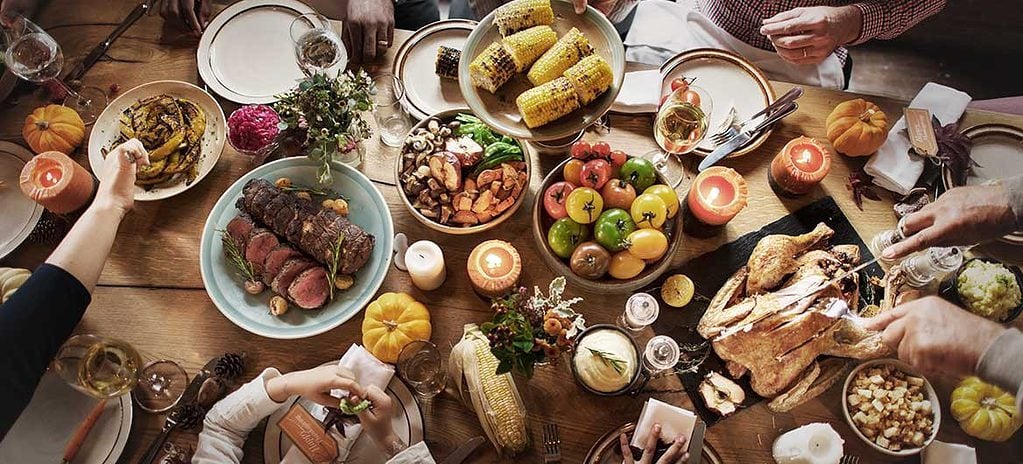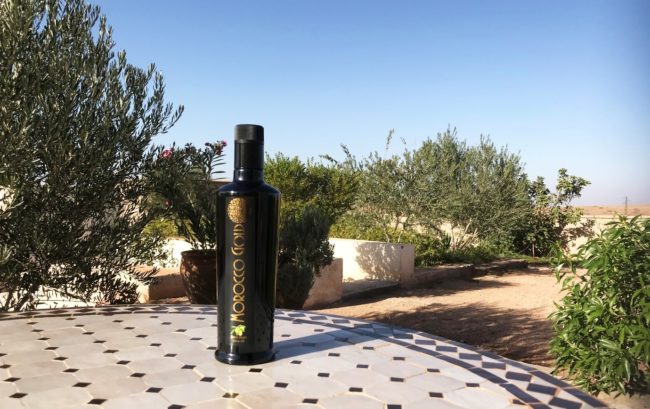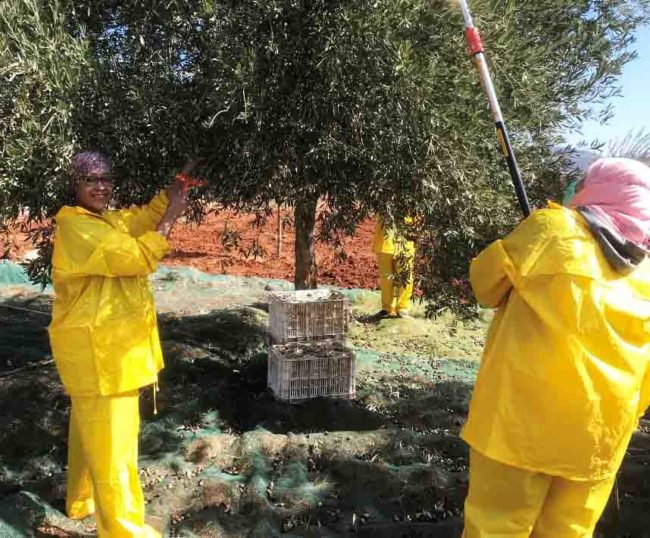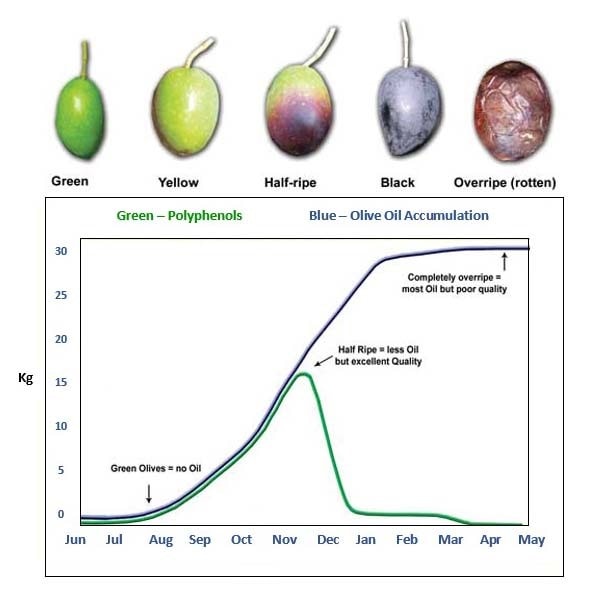Exploring the history of Thanksgiving celebrations, extra virgin olive oil from Morocco and why the two go so well together, and why Morocco Gold represents the best olive oil from Morocco.
Updated October 28th 2023

Summary
- Morocco Gold extra virgin olive oil (EVOO) is the ideal ‘gift of health’ this Thanksgiving
- Thanksgiving celebrations can be traced back for centuries – across all cultures
- The first recognised Thanksgiving celebration involved Native Americans as well as the fledgeling colonists
- There is a strong historic connection between the USA and Morocco – the first country to recognise the USA as an independent nation
- Olive oil has been a much-celebrated food – for centuries
- Morocco has been producing exceptional extra virgin olive oil – for centuries
- Morocco Gold extra virgin olive oil represents the very best of Moroccan olive oil
Contents
- Extra Virgin Olive Oil (EVOO) : The Ideal ‘Gift Of Health This Thanksgiving’
- Thanksgiving’s Ancient Origins
- Thanksgiving At Plymouth
- The Moroccan Connection
- Morocco Gold : Best Extra Virgin Olive Oil For Thanksgiving
- The Best Extra Virgin Olive Oils: What Are You Paying For?
- About Morocco Gold Extra Virgin Olive Oil
- Harvesting The Best Extra Virgin Olive Oil
- What Makes Morocco Gold The Best Extra Virgin Olive Oil?
Extra Virgin Olive Oil (EVOO) : The Ideal ‘Gift Of Health This Thanksgiving’
Thanksgiving is a time to share gratitude and appreciation with our loved ones, and what better way to show your appreciation than with a gift that promotes health and wellbeing? It’s no secret that an unhealthy diet and lifestyle can lead to a whole host of health problems. Many of these issues are exacerbated by the consumption of saturated fats – which are all too abundant in our modern diets.
Enter Moroccan extra virgin olive oil (EVOO), specifically Morroco Gold extra virgin olive oil (EVOO). Moroccan extra virgin olive oil has emerged as a rising star in the world of healthy eating. With its unique flavor and rich nutritive profile, this best olive oil has been gaining popularity among health-conscious consumers. Known for its low acidity levels, this extra virgin olive oil (EVOO) is packed with essential nutrients, including monounsaturated fatty acids and health enhancing polyphenols. Moroccan producers also follow strict organic farming practices, ensuring that the olives are grown without the use of harmful pesticides or chemicals. As consumers become more aware of the importance of healthy eating, Moroccan extra virgin olive oil (EVOO) and Morocco Gold extra virgin olive oil (EVOO) in particular is quickly becoming a top choice for those seeking to improve their health and wellbeing.
Not all olive oils are created equal, and this high-quality extra virgin olive oil (EVOO) is a cut above the rest, made with the freshest olives and boasting a high concentration of polyphenols, antioxidants that contribute to a myriad of health benefits. From reducing inflammation to promoting heart health, this extra virgin olive oil (EVOO) is the ideal gift for health-conscious friends and family alike. So this Thanksgiving, give the gift of health with Morroco Gold extra virgin olive oil (EVOO) – the best olive oil out there.
Thanksgiving’s Ancient Origins
Annual celebration of the harvest and its bounty can be traced back to festivals and celebrations that span a host of cultures stretching back over the millennia. In ancient times, the Egyptians, Greeks and Romans feasted and paid tribute to their gods after the Autumn harvest. Thanksgiving also bears a close resemblance to the ancient Jewish harvest festival of Sukkot.
Here in the UK the harvest festival, also known as the harvest home, is traditionally celebrated on the Sunday nearest the harvest moon. This is the full Moon that occurs closest to the autumn equinox, which is often between 21-23 September.

Normally falling towards the end of September, or early October, the harvest festival is the closest thing the UK has to a day of thanksgiving when all the crops had been brought in. The whole community, including children, needed to help right up until the end, as lives depended on the success of the harvest. In the past they would be held as soon as the harvest had been completed and the final cartload triumphantly returned to the farm where the Harvest Supper, also known as the ‘Harvest Home’, would take place.
The word ‘harvest’ comes from the Old English word hærfest meaning ‘autumn’, aptly the season for gathering the food of the land. This was a vital time of year, when success was a genuine matter of life or death. A prosperous harvest ensured that a community would be fed throughout the potentially barren winter months. It’s therefore no surprise that it was also a time steeped in superstition and, if successful, much celebration. Many of these traditions even pre-date Christianity.
So although the current American concept of Thanksgiving developed in the colonies of New England with the arrival of the incredibly brave settlers who arrived on the Mayflower, the roots of the celebration are as old as humanity, with days of fasting during difficult times and days of feasting and celebration in times of plenty.
Thanksgiving At Plymouth
In September 1620, a small ship called the Mayflower left Plymouth, England, carrying 102 passengers, an assortment of religious separatists seeking a new home where they could freely practice their faith and other individuals lured by the promise of prosperity and land ownership in the New World.
After a treacherous and uncomfortable crossing that lasted 66 days, they dropped anchor near the tip of Cape Cod, far north of their intended destination at the mouth of the Hudson River. One month later, the Mayflower crossed Massachusetts Bay, where the Pilgrims, as they are now commonly known, began the work of establishing a village at Plymouth.
Throughout that first brutal winter, most of the colonists remained on board the ship, where they suffered from exposure, scurvy and outbreaks of contagious disease. Only half of the Mayflower’s original passengers and crew lived to see their first New England spring. In March, the remaining settlers moved ashore, where they received an astonishing visit from an Abenaki Indian who greeted them in English.
Several days later, he returned with another Native American, Squanto, a member of the Pawtuxet tribe who had been kidnapped by an English sea captain and sold into slavery before escaping to London and returning to his homeland on an exploratory expedition. Squanto taught the Pilgrims, weakened by malnutrition and illness, how to cultivate corn, extract sap from maple trees, catch fish in the rivers and avoid poisonous plants. He also helped the settlers forge an alliance with the Wampanoag, a local tribe, which would endure for more than 50 years.
In November 1621, after the Pilgrims’ first corn harvest proved successful, Governor William Bradford organized a celebratory feast and invited a group of the fledgling colony’s Native American allies, including the Wampanoag chief Massasoit. Now remembered as American’s “first Thanksgiving”—although the Pilgrims themselves may not have used the term at the time—the festival lasted for three days.
The Pilgrim chronicler Edward Winslow, who wrote:
“Our harvest being gotten in, our governor sent four men on fowling, that so we might after a special manner rejoice together, after we had gathered the fruits of our labors; they four in one day killed as much fowl, as with a little help beside, served the Company almost a week, at which time amongst other Recreations, we exercised our Arms, many of the Indians coming amongst us, and amongst the rest their greatest king Massasoit, with some ninety men, whom for three days we entertained and feasted, and they went out and killed five Deer, which they brought to the Plantation and bestowed on our Governor, and upon the Captain and others. And although it be not always so plentiful, as it was at this time with us, yet by the goodness of God, we are so far from want, that we often wish you partakers of our plenty.”
Edward Winslow
Historians have suggested that many of the dishes were likely prepared using traditional Native American spices and cooking methods. Because the Pilgrims had no oven and the Mayflower’s sugar supply had dwindled by the fall of 1621, the meal did not feature pies, cakes or other desserts, which have become a hallmark of contemporary celebrations.
The Moroccan Connection
So what is the connection with Morocco and the emergence of America as an independent nation?
At the beginning of the American Revolution, American merchant ships were subject to attack by Barbary Pirates who had dominated the seaways for centuries. (Indeed, the original Pilgrim settlers had themselves been attached by pirates in 1625 on a return trading voyage to Britain). During the revolution, American envoys tried to obtain protection from European powers, but to no avail. On December 20, 1777, Morocco’s Sultan Mohammed III declared that the American merchant ships would be under the protection of the sultanate and could thus enjoy safe passage.
So Morocco became the first nation to recognize the fledgling United States as an independent nation. The Moroccan-American Treaty of Friendship stands as the U.S.’s oldest non-broken friendship treaty. Signed by John Adams and Thomas Jefferson, it has been in continuous effect since 1786.
Following the re-organization of the U.S federal government upon the 1787 Constitution, President George Washington wrote a now venerated letter to the Sultan Sidi Mohamed strengthening the ties between the two countries.


The United States legation (consulate) in Tangier is the first property the American government ever owned abroad. The building now houses the Tangier American Legation Museum and is well worth a visit.
Morocco Gold : Best Extra Virgin Olive Oil For Thanksgiving
Olive Oil is the most celebrated of food and more and more people are re-discovering the unique qualities of this, the original ‘superfood’ for themselves.
Asked to name an olive oil producing country, many people may opt for the perceived market leaders such as Italy or Spain. Although Morocco is the fourth largest producer of olives in the world, the quality of its extra virgin olive oil is relatively little known outside the country itself. However, the benign climate makes Morocco a ‘Garden Of Eden’ on the doorstep of Europe and the ideal location for olive cultivation with mild winters and warm, dry summers.
The Best Extra Virgin Olive Oils: What Are You Paying For?
When it comes to olive oil, you generally get what you pay for. The best olive oils are made from a single source of olives harvested early in the season when the fruit is young and green. As a result, these extra virgin olive oils have a richer flavour and a higher concentration of polyphenols, the antioxidants that deliver the many health benefits of high-quality extra virgin olive oil.
Olive oils that are made from blends are usually less expensive, but they will not have the same health and taste quality as the single source oils, such as Morocco Gold extra virgin olive oil. Just be sure to check the label carefully to make sure you’re getting a quality product. When it comes to olive oil, quality is always more important than price.
About Morocco Gold Extra Virgin Olive Oil

Morocco Gold is a super-premium beautifully crafted Extra Virgin olive oil. Morocco Gold olives are grown in a raised valley in the foothills of the magnificent Atlas mountains. The region rarely sees many tourists or ‘outsiders’.
Morocco Gold is made exclusively from the Picholine Marocaine olives. From branch to bottle, no shortcuts are taken, no steps are overlooked. The result is a ‘liquid gold’: a rare, polyphenol rich Extra Virgin olive oil of brilliant quality, extraordinary health benefits and a taste like no other.
The Taste
Morocco Gold has a distinctive green fruitiness, hints of sweet almonds, fresh turf and a hint of herbs. It has the ‘pepperiness’ of a fine extra virgin olive oil giving Morocco Gold a clean, well balanced finish that delivers an elevated gastronomic experience for food lovers.
Harvesting The Best Extra Virgin Olive Oil

If you’re a farmer, the word harvest elicits myriad emotions. Feelings range from stress to anxiety to relief and to hope and joy. And if you are fortunate enough to allow yourself a few spare moments during this exhausting season, you might just find yourself overwhelmed with a feeling of contentment and satisfaction rarely found in our modern world.
Determining when to harvest is not an exact science. It is an amalgam of a number of factors such as the desired olive oil yield, intended level of antioxidants, and, of course, the desired flavour profile.
It is important to strike the right balance for Morocco Gold customers. Our aim is to combine the taste characteristics of a premium extra virgin olive oil, young and fruity, with the health enhancing polyphenols to create an extra virgin olive oil that is well balanced and not too ‘aggressive’ when taken on its own.
Our olives are picked slightly earlier in the season to maximise the polyphenol content of our oil. This does however mean that the yield – the quantity of oil delivered during pressing is considerably less, although of a higher quality. (see ripening graph)

A key to achieving this balance is the generations of experience of our olive growers, the care and attention the pay to their crop throughout the whole growing season and the dedication and attention to detail paid during the harvesting of Morocco Gold extra virgin olive oil olives.
Harvesting requires a lot of preparation and planning including having the team of ‘sisters’ ready and eager, the harvesting equipment in working order, transportation arranged to carry our olives to the mill, are just a few of the preparations that need to be in place. Morocco Gold olives are harvested by hand using flexible combs. Nets and tarpaulins are placed on the ground to avoid contact between the olives and the ground.
When you see those first mounds of olives accumulating in the harvest trays, it’s a magical moment. The thing that have been working for all year is finally coming to fruition. Incidentally, the word itself derives from the Latin frui (“to use, enjoy”) and fruit (sense of “act or state of bearing fruit”). When the fruit is finally being plucked off the trees and collected into trays for milling, it is truly a joyous occasion. There’s a sense of excitement around your hopes for a solid yield with superior flavour.
The sense of anticipation grow as the olives are delivered to the processing plant, unloaded into receiving the hoppers, passed through strippers to removes any impurities and then washed and drained before processing. They are then crushed, turned in malaxers, and spun in high-speed centrifuges to separate out the olive oil.
At last, the ‘liquid gold’ begins to pour into the final vessel. It is at this point that a tasting cup is eased into the stream for the first sample of the season’s olive appreciated oil.
As the cup is lifted there is a pause whilst the fresh aroma that wafts through the air is appreciated. This gives the first indication of the level of fruitiness. The olive oil is then sipped, coat the inside of the palates with viscous oil to assess the taste – is it bitter or mild? The greater the bitterness, the higher the level of polyphenol antioxidants. When swallowed, is there the characteristic ‘bite’ or pepperiness in the back of the throat, an indication of the oil’s pungency, also level of antioxidant polyphenols.
The time between harvest and pulping does not exceed 24 hours. Morocco Gold extra virgin olive oil is unfiltered to retain all of its natural properties and goodness. Nothing is added or taken away so that it is the result of the soil, the sun and the rain only.
Every aspect of olive production ultimately affects the oil itself: the growing region (climate, altitude, soil character), methods of growing, harvesting and transporting the fruit, as well as extraction and storage methods. The care that is taken in each of these steps not only affects the taste and quality of the olive oil but its cost, yield, and shelf life.
What Makes Morocco Gold The Best Extra Virgin Olive Oil?
Morocco has the ideal climate for olive cultivation – mild winters, and warm, dry summers. The soils in the main olive growing regions near Taounate, Taza, Fez, Meknes, Beni Mellal, and Marrakech are rich and deep, and generally have an equal balance of clay and coarse sands.
The climate is also slightly harsher than in other olive oil producing countries. Morocco Gold olives are grown in a valley that is about 2,000 feet above sea level. This helps to create the additional climatic challenges that encourage polyphenol uptake within the olive tree. It is also an area with naturally occurring high phenols in the soil itself.
Best Extra Virgin Olive Oil Is Extra Virgin Olive Oil:
This means it is an olive oil of less than 0.8% acidity and has no taste defects.
Best Extra Virgin Olive Oil Is Single Estate:
This means that it is from one source and is not mixed or blended with other olive oils, (even if they are extra virgin olive oil).
Best Extra Virgin Olive Oil Production:
The best extra virgin olive oils are produced when the olives are young and green. They are hand-picked and handled with care and attention throughout the harvesting process. The olives are pressed within 24 hours of picking at temperature of below 28 º C.
Best Extra Virgin Olive Oil Taste :
The taste characteristics of best extra virgin olive oils are:
Fruity : having pleasant fruit flavours characteristic of fresh ripe or green olives
Bitter : with a mostly pleasant acrid flavour sensation on the tongue
Pungent : giving a distinctive peppery sensation in the mouth and throat. This is a sign of abundant nutrients in good, fresh extra virgin olive oil.
Best Extra Virgin Olive Oil Is High In Heath Enhancing Poyphenols :
Thanks to the recent spotlight on the Mediterranean Diet, extensive research has been done on the phytonutrient composition of extra virgin olive oil. What has been discovered is an extensive list of phytonutrients; one of the most praised is its polyphenols. The amount of polyphenols found in extra virgin olive oil is truly amazing!
Polyphenols are a potent antioxidant – one that can decommission a nasty molecule in your body called a free radical. Free radicals can ricochet around inside your body and harm good cells. Antioxidants, such as the polyphenols found in extra virgin olive oil, work to neutralize free radicals; protecting the body from their harmful effects.
The European Food Safety Agency has now approved health claims for extra virgin olive oils with a polyphenol content of more than 250mg / kg. The polyphenol content in Morocco Gold is well above this level.
Best Extra Virgin Olive Oil Is The Healthiest Fat on Earth :
Fats in the diet are highly controversial. You will see people arguing about animal fats, seed oils and almost everything in between. But one of the few fats that most people agree is healthy is extra virgin olive oil. This oil, part of the Mediterranean diet, is a traditional fat that has been a dietary staple for some of the world’s healthiest populations. There is now considerable scientific research behind the health effects of olive oil. These studies show that the fatty acids and antioxidants in it have some powerful health benefits.
Best Extra Virgin Olive Oil Delivers A Wide Range Of Health Benefits :
The health benefits from best high-quality extra virgin olive oils include:
Extra virgin olive oil is probably the most extensively researched foodstuff on the planet – to really understand why it is so good for us. This means that the health benefits are evidence based and not the result of marketing ‘hype’.
Best Extra Virgin Olive Oil Reduces Risk Of Cardiovascular Diseases
- Cardiovascular diseases are the top cause of death in the industrialised world. A host of studies have documented that arteriosclerosis is closely linked to eating habits, lifestyle and some aspects of economic development.
The lowest rates of death from coronary heart disease are currently recorded in the countries where olive oil is virtually the only fat consumed.
Professor Francisco Grande Covian
Best Extra Virgin Olive Oil Has A Beneficial Effect On Ulcers And Gastritis
- Olive oil reduces the risk of the flow or reflux of food and gastric juice up from the stomach to the oesophagus, the gastric content of the stomach is released more slowly and gradually into the duodenum, giving a greater sensation of “fullness”.
Best Extra Virgin Olive Oil Maintains The Digestive Tract In Good Health.
- Extra virgin olive oil produces a small amount of secretion by the pancreas, making this organ “work” little, but efficiently and enough to carry out all its digestive functions. It stimulates the absorption of various nutrients (calcium, Iron, magnesium, etc.).
Olive oil, therefore, is a fat that is digested and absorbed really well. It has choice properties and a mild laxative effect that helps to combat constipation and bad breath.
Best Extra Virgin Olive Oil Helps To Reduce Blood Pressure
- One in every four adults is hypertensive. This increases the risk of early death because of the damage to the body’s arteries, especially the arteries that supply blood to the heart, kidneys, brain and eyes. Addition of extra virgin olive oil to a diet has a clear lowering effect on blood pressure. Regular consumption of extra virgin olive oil decreases both systolic (maximum) and diastolic (minimum) blood pressure.
Best Extra Virgin Olive Oil Helps To Control Healthy Cholesterol Levels
- Cholesterol is a fatty substance contained in foods of animal origin. Diets containing a large amount of animal fats raise blood cholesterol level, which is one of the chief risk factors of cardiovascular disease. Extra virgin olive oil lowers the levels of total blood cholesterol. LDL-cholesterol and triglycerides. At the same time it does not alter the levels of HbL-cholesterol (and may even raise them), which plays a protective role and prevents the formation of fatty patches and recurrent heart disease.
Best Extra Virgin Olive Oil Eases Or Prevents Diabetes
- An extra virgin olive oil rich diet is not only a good alternative in the treatment of diabetes, it may also help to prevent or delay the onset of the disease. How it does so is by preventing insulin resistance lowering triglycerides and ensuring better blood sugar level control and lower blood pressure.
Best Extra Virgin Olive Oil Lessens The Severity Of Osteoporosis
- Osteoporosis is a reduction in bone tissue mass that increases the risk of fractures. There are two types. Type I occurs in middle-aged, post-menopausal women and type II in the elderly. Olive oil appears to have a favourable effect on bone calcification, and bone mineralisation is better the more olive oil is consumed. It helps calcium absorption, thereby playing an important part during the period of growth and in the prevention of osteoporosis.
Best Extra Virgin Olive Oil :
Is found in dark glass bottles that protects the olive oil against ultra-violet rays and thus extends shelf-life.
Best Extra Virgin Olive Oil Storage :
If of a superior quality and stored correctly, in a cool dark place and away from direct sunlight, it can have a shelf life of up to 4 years
Best Extra Virgin Olive Oil Availability :
Genuine extra virgin olive oil is extremely rare. Most olive oils, (even some that are badged as extra virgin), have been mixed, blended or processed in some way.
Morocco Gold Extra Virgin Olive Oil
Morocco Gold extra virgin olive oil satisfies all of the above criteria.
